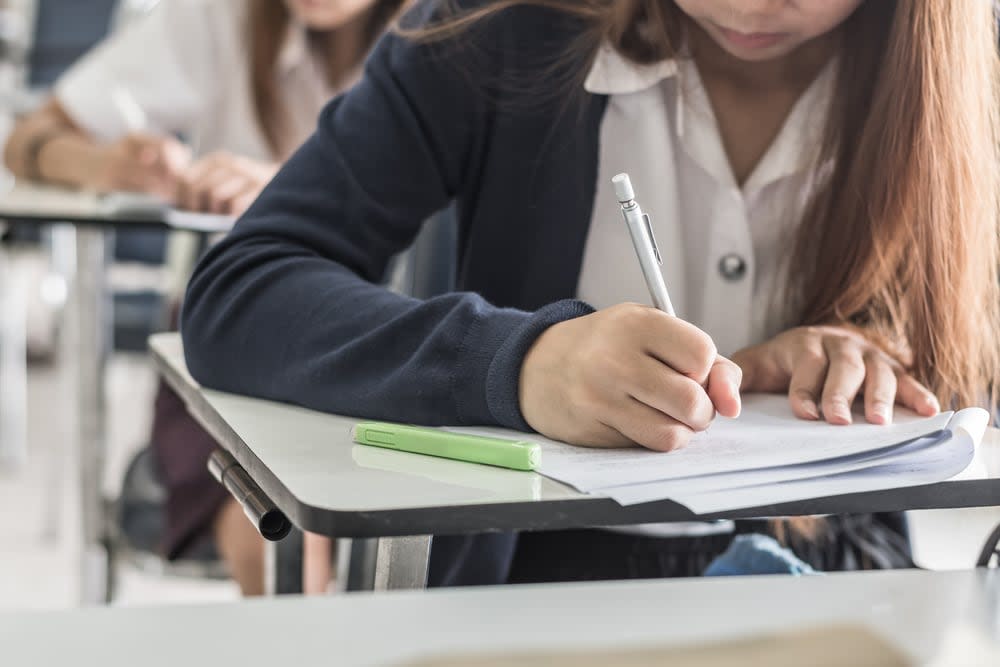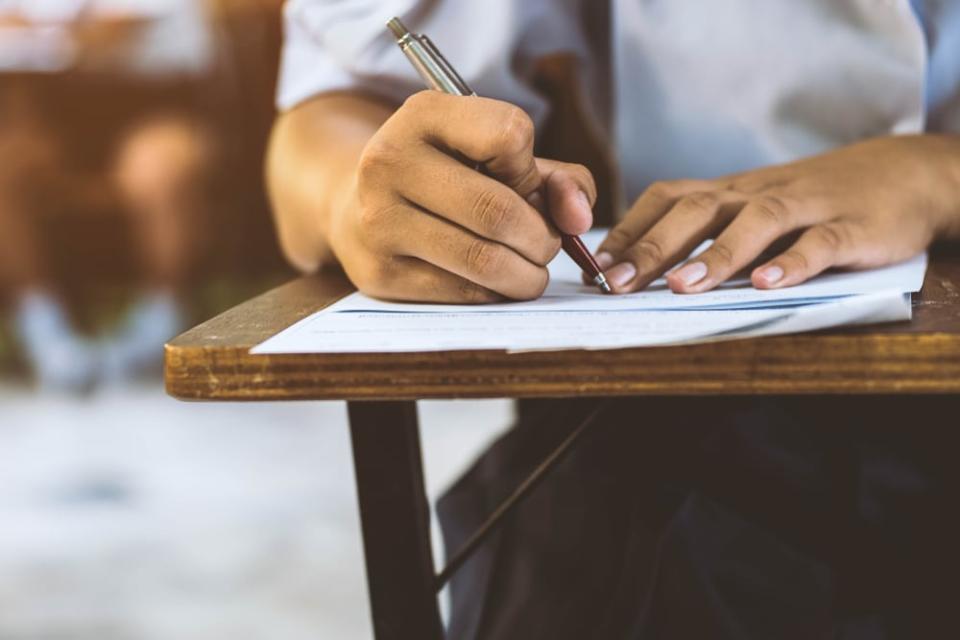N.B. student assessment results continue to decline in reading, math, science

New Brunswick student skills are on a steep decline, according to the latest assessments by PISA, the Program for International Student Assessment.
PISA has been looking at the academic progress of 15-year-old students in dozens of countries.
Its assessments present real-life challenges or complex scenarios that require students to use their skills in reading, math or science.
Based on its 2022 results, New Brunswick ranked in the bottom three in all subjects, said lead analyst Lucia Tramonte, a University of New Brunswick professor and co-director of the Canadian Research Institute for Social Policy.
New Brunswick student performance was about a year and a half behind that of their peers in Canada and other OECD countries, Tramonte said.
Another worrisome result was the percentages of students who didn't achieve the minimum proficiency standard for sustainable development.

Tramonte, showing here at a PISA event in Mongolia, hopes New Brunswick will dig more deeply into the numbers to find out what's happening in schools. (Submitted by Lucia Tramonte)
In math, that portion was 30 per cent, in reading 27 per cent, and in science 22 per cent.
"All students should be able to read, write, function with reading, math and science at a level that is sufficient for the challenges of global society," said Tramonte.
"The pocket of vulnerable students that are really struggling … is quite large," she said.
She hopes the province will "dig into the data and start asking some uncomfortable questions … like what's going on?"
N.B. teachers want more investment in education
The New Brunswick Teachers Association has a few ideas about that.
"Last month, teachers province wide spoke up in record numbers to call attention to the current realities in their classrooms," said president Peter Lagacy.
"They shared the countless complexities that undermine their attempts to support students and the critical shortage of certified teachers who are available to fill vacancies in the system, both current and future," he said.
Lagacy said the PISA results speak to an "urgent need" for direct investments at the classroom level, "so all children and youth can learn, have the positive educational experience they deserve, and ultimately build a better future for New Brunswickers."
It's a touchy subject, said Tramonte.
"In education, every stakeholder is dedicated and committed and might feel attacked or accused of being responsible for these result," she said.
Possible explanations for poor results
The explanations for the poor test scores could be several, said Tramonte.
Performance by 15-year-olds is really a measure of everything that has been learned to that point in the school system, she said.
Countries that do well on the assessments tend to take them, and education in general, very seriously, she said.
"They're being very introspective and thinking about how to promote learning and strong skills from the very beginning."
Canada 8th in world in math, reading, science
Canada ranks eighth in the world in math, reading and science, said Tramonte, who presented the PISA findings in Mongolia this month.
Countries that ranked higher include Singapore, Macao, Chinese Taipei, Hong Kong, Japan, Korea, Estonia, Switzerland and Ireland.
Compared to Singapore, New Brunswick students tested about four academic years behind, said Tramonte.
She said it's possible that Canadian students aren't really doing as bad as the results indicate, but they could also be doing even worse.
A relatively small sample size makes the assessment results a less definite representation. Recruiting students to take the assessment during the pandemic wasn't easy, said Tramonte.
And New Brunswick isn't alone in its struggles.

The downward trend began in 2012, but has taken a big dip since 2018. (Shutterstock/arrowsmith2)
In fact, Canada as a whole is part of a worldwide trend of poorer math and reading performance, said Tramonte.
Some people think the downturn is because of the pandemic.
Tramonte said the downward trend actually began in 2012, but she acknowledged a big dip in scores since 2018, as well as wider equity gaps.
For example, boys performed very poorly in reading, she said.
On a positive note, Tramonte said, the province has a wealth of data from years' worth of assessments done at the elementary, middle and high school levels.
It could contain the seeds for solutions, she said.
An emailed statement from the New Brunswick Department of Education said the decline was no surprise, "given the many learning disruptions" in the years leading up to the assessment.
It also highlighted that other jurisdictions and countries saw their scores drop and suggested New Brunswick had "maintained its standing at the OECD average."
"New Brunswick's education system is adapting to ensure that students remain at the forefront," said the email, from communications officer Judy Désalliers.
2022 PISA Results - 20 pts = 1 grade level
mathreadingscienceOECD average472476485New Brunswick468469483Canada497507515
"Additional human resources have already been deployed this academic year in both anglophone and francophone sectors to support schools so that they can better meet growing needs in literacy and numeracy."
The statement acknowledged "there is more work to be done."
"The Department of Education and Early Childhood Development will continue to work on addressing the complex and varied needs of our students."


